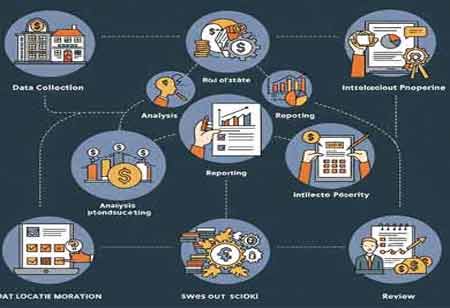CLOSE
Specials
- RegTech Europe
- Financial Risk Management APAC
- Investment Banking APAC
- Corporate Advisory APAC
- Regtech APAC
- Escrow Services
- Digital Banking Latam
- Trading Solutions APAC
- Treasury Management Europe
- CPA Firms Canada
- Financial Risk Management Europe
- Mortgage Broker
- Financial Licensing Europe
- RIA Advisory Europe
- FinTech Canada
- Financial Asset Management APAC
- Investment Banking Canada
- Payment Solution
- Lending Mangment Latam
- Payment Solution Europe
- Broker Dealer Firms Canada
- Alternative Investments Canada
- Financial Fraud
- Investment Management Latam
- Financial Health Europe
- Lending mangment
- Financial Marketing
- Proprietary Trading Europe
- Wealth Management
- FinTech
- Financial Brokerage Firm APAC
- Investment Advisory Europe
- Investment Advisory APAC
- Wealth Management MENA
- Claim Adjusting
- Claim Adjusting APAC
- Mergers and Acquisitions Consulting APAC
- Equipment Financing
- CPA Firms
- Mergers and Acquisitions Consulting Canada
- Investment Services
- Valuation Services Canada
- Wealth Management APAC
- Broker Dealer Firms
- Debt Collection Agencies
- Mergers and Acquisitions Consulting
- FinTech Europe
- Fintech Latam
- Financial Planning / Retirement
- Investment Management
- Financial Compliance
- Digital Banking Europe
- CFO Services
- Debt Collection Agencies Europe
- Wealth Management Europe
- Mergers and Acquisitions Consulting Europe
- Financial Restructuring Europe
- Financial Portfolio Management Canada
- Business Loan
- Payment and Card Latam
- Wealth Management Latam
- Mergers and Acquisitions Consulting Latam
- Tax Advisory Canada
- Trading Solutions Europe
- Alternative Investments
- Digital Insurance Europe
- Investment Services Latam
Weekly Brief
×Be first to read the latest tech news, Industry Leader's Insights, and CIO interviews of medium and large enterprises exclusively from Financial Services Review
Thank you for Subscribing to Financial Services Review Weekly Brief
Diversification and Innovation Take Center Stage with Latest Alternative Asset Trends
Investors seeking diversification and high returns turn to alternative assets as traditional investment avenues undergo significant transformations.

By
Financial Services Review | Thursday, August 03, 2023
Stay ahead of the industry with exclusive feature stories on the top companies, expert insights and the latest news delivered straight to your inbox. Subscribe today.
Alternative assets, such as NFTs, cryptocurrencies, real estate crowdfunding, and AI/robotics, offer investors numerous exciting options.
FREMONT, CA: Investors seeking diversification and high returns turn to alternative assets as traditional investment avenues undergo significant transformations. The alternative assets sector continuously evolves, and many new trends have emerged recently. From non-fungible tokens (NFTs) to cryptocurrencies, the landscape is witnessing a wave of innovation and exploration, presenting opportunities and challenges for investors.
Non-Fungible Tokens (NFTs) Revolutionize the Digital Art World:
NFTs have taken the world by storm in art and collectibles. NFTs can authenticate and tokenize digital assets, including artwork, music, videos, and virtual real estate. The skyrocketing sales of NFTs have created a new market for artists and collectors, with some notable transactions reaching staggering amounts. Investors are now exploring NFTs to invest in the digital art market, viewing them as unique and potentially valuable assets.
Cryptocurrencies are Maturing Beyond Bitcoin:
While Bitcoin paved the way for cryptocurrencies, the digital asset space has evolved significantly, with alternative cryptocurrencies gaining traction. Ethereum, Binance Coin, and Cardano are just a few examples of altcoins that have seen substantial growth and investor interest. These cryptocurrencies offer unique features and use cases, such as smart contract capabilities and decentralized finance (DeFi) applications, attracting investors looking for opportunities beyond the traditional financial system. Additionally, central bank digital currencies (CBDCs) are gaining momentum, with several countries exploring their implementation, further expanding the crypto landscape.
Real Estate Crowdfunding and Tokenization:
Real estate has traditionally been an attractive investment class, but the barriers to entry often limit individual investors' opportunities. However, crowdfunding platforms and tokenization are changing the game. Real estate crowdfunding allows investors to pool funds and invest in properties, enabling broader access to real estate projects. Furthermore, tokenization represents dividing a real estate asset into tradable digital tokens, which can be bought and sold on blockchain platforms. This innovative approach provides fractional ownership, liquidity, and transparency to real estate investments.
Sustainable and Impact Investing:
Investors are increasingly focused on making a positive impact through their investment choices. Sustainable and impact investing has gained prominence as investors seek to align their portfolios with environmental, social, and governance (ESG) principles. Renewable energy projects, clean technologies, and social enterprises are alternative assets attracting attention as investors aim to generate returns while contributing to a sustainable future.
Artificial Intelligence and Robotics:
Technological advancements have created opportunities for investors in artificial intelligence (AI) and robotics. AI-powered solutions, robotics automation, and machine learning algorithms disrupt industries and transform business operations. Investors are recognizing the potential of this sector and investing in companies at the forefront of AI and robotics innovation. These technologies are expected to reshape industries from healthcare to manufacturing, making them an intriguing alternative asset class.
Navigating Risks and Regulation:
With the emergence of these alternative asset trends, investors must understand the associated risks and potential regulatory challenges. Some of these assets' decentralized and rapidly evolving nature necessitates caution and due diligence. Regulators worldwide are grappling with establishing frameworks to address potential risks and ensure investor protection in these developing markets.

Copyright © 2025 Financial Services Review. All rights reserved





